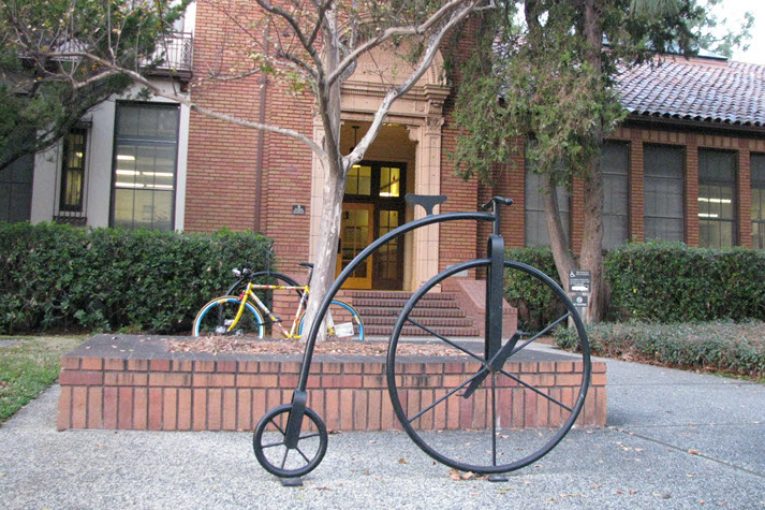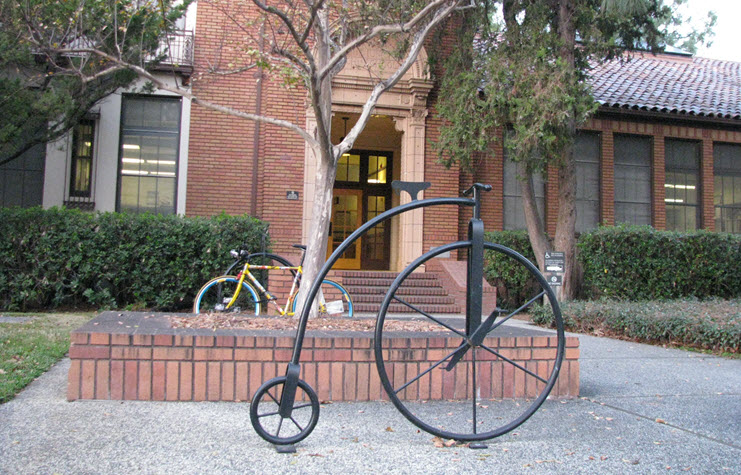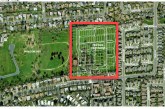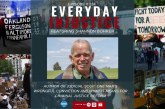

By David M. Greenwald
Executive Editor
Davis, CA – Sean Brooks put out a different perspective on the commission reform process (see: Reform to City Commissions Is Essential).
From his perspective proposal put forward by Mayor Josh Chapman and Vice Mayor Bapu Vaitla is “a necessary reform.”
Writes Brooks, “In my personal experience as a founding (and now former) member of the Police Accountability Commission, I saw first hand how the status quo fails to provide the city with the timely expert advice and public engagement it desires.”
He argues, “The commissions as they stand are a poor vehicle for public and expert engagement. The proposed reforms will help by consolidating the number of commissions and more clearly delineating their scope, allowing city staff to more effectively support their work.”
He adds, “But streamlining the commissions is not enough. If we accept that their limitations make them poor vehicles for public advisory, we need to envision new strategies for accomplishing that essential work.”
We can of course debate whether this is true and whether the proposed reforms will accomplish this.
But regardless of those merits, the rollout of this plan seemed to be ill-conceived.
As I noted the other day, I got to know Elaine Roberts Musser nearly 15 years ago when the council made a poorly executed and ill-fated attempt to merge the Social Services Commission with the Senior Citizens Commission.
While I don’t believe that there was any ill-intent here, as I pointed out earlier this week, the proposal seemed to lack the institutional knowledge and the history not only of some of these commissions, but also why they came to be in the first place.
The easiest criticism, as Elaine Roberts Musser pointed out in her letter in the Davis Enterprise, was that, “The matter was introduced on a Friday night before Tuesday’s City Council meeting, not as an informational item, but to be voted on, with virtually no time for public input/opposition.”
More critically, “There was no meaningful input from commissioners. Allegedly chairs of commissions were consulted about what was/wasn’t working in their respective commissions, but merging commissions was not mentioned. Some chairs were not even consulted.”
That’s Civics 101 – especially in a place like Davis – get buy-in from the stakeholders. Had the subcommittee met with each of the chairs of the commissions, they would have gotten feedback but also apprise them of what is happening.
By not doing that, a lot of people who volunteer considerable time were not only caught off guard but had limited opportunities to offer their opinions and suggestions. The dais is not a good place for dialogue with the community – in fact, while there are public comment opportunities, it is a decidedly asymmetrical venue, as the community learned with an unfortunate exchange last week.
Sean Brooks notes, “The recommended reforms have drawn significant criticism. But ironically the controversy exemplifies the problems the council is trying to address. While those of us who are city politics gadflies may have strong opinions, the role of commissions is not well-understood by the general public.”
He adds, “This lack of public understanding means debates over process can be confused for debates of substance.”
On the other hand, as Musser points out, “Ostensibly, merging commissions would make them “more powerful”, according to the Subcommittee on Commissions (Vaitla/Chapman). Yet merging commissions will cause the workload to double, resulting in either longer meetings or less time to discuss issues. More importantly, commissioners are not likely to have subject matter expertise to cover both missions in a merged commission.”
That is one of my big concerns as well.
The Council has already backed off from the HRC-Arts merger, but there are other problems as well.
For example, the Utilities Commission and the Finance and Budget Commission – one of them makes recommendations on rates and requires a high degree of subject matter expertise while the Finance and Budget Commission is largely concerned with city revenues and fiscal responsibility.
The Unitrans Committee is largely a UC Davis entity that addresses bus routes, something that does not get a lot of discussion by the Bicycle, Transportation and Street Safety Commission – which by the way, is already a merged commission.
A lot of the points that Brooks raises are valid.
He writes, “The existing commission structure faces multiple functional problems: sprawl, limitations of city staff resources, and unnecessary restraints created by state law. But commissions are also fundamentally exclusive – restraining opportunities for input into city policymaking to a privileged few, and locking out potential experts and the broader public.”
While he argues that the “reforms proposed by Mayor Chapman and Vice Mayor Vaitla deal with some of these problems, but not all,” that may or may not be true.
Several people I have spoken with who agree that there needs to be change, also believe the roll out here was problematic. For one thing, why the rush? There was no situation that compelled such an urgent approach without a full discussion with each of the commissions and their stakeholders.
A good discussion and dialogue might have avoided some of this minefield and these road blocks.
It is not too late.
If the concern is the General Plan process, my suggestion remains to create a steering committee such as was created in 2007-08 which would allow for one body to take on this work over time. This would be much like the also successful Downtown Plan Advisory Committee.
I think there are legitimate concerns that were laid out by both the council members but also the opposition and only through dialogue can these concerns be addressed.







After having a discussion with others I have an alternative suggestion. Instead of transforming all of these commissions permanently for a short term purpose of preparing the General Plan Updated, the City should suspend a certain set of commissions for the period of developing the GPU and then reconsider how to revise the commissions after the GPU is done. Then the council should establish the commissions/committees it needs specifically for the GPU in a focused manner and dissolve those when the GPU is adopted.
Several commissions that have regular ongoing tasks–Finance & Budget, Human Relations, Civic Arts, Historic Resources. Those probably should continue to meet monthly. The Utilities Commission probably should meet when there’s a new rate case or a specific policy decision and skip the annual water quality reports et al. I can’t opine on Social Services or some other ones, but Transportation, Natural Resources, Trees, Open Space and Parks are candidates to be suspended and those members assigned to the GPU specific commissions/committees. That’s one set of possibilities. It allows the Council to punt the longer term decision and still get a set of committees that help them in the short run.
The planning commission is the only one that is required by law. All of the others should be terminated in advance of the General Plan update, and only added back if the potential advice is considered to be beneficial to the operations of the City. The job at hand is to provide the best support to the ongoing management of the City, not to provide the greatest opportunity for local ‘busy bodies’ with too much time on their hands to engage. If we end up with more than a half dozen commissions going forward then we have failed.
What do HRC, Social Services, Civic Arts, and similar commissions have to do with the General Plan. You appear to just be using the GPU as an excuse for a larger agenda of reducing citizen input. And unfortunately the City Staff has not shown recently that its particularly well informed at the tasks they face. (A salient example for me was that the chief planner didn’t even understand how a microgrid is planned and built despite the NRC telling her twice what are the requirements, and microgrid readiness now being a primary utility requirement for new developments.)
Davis ran best when citizens were deeply involved in the governance process and staff facilitated that work. I was on four committees that produced useable and useful products that led to major decisions (sometimes to do nothing.) Instead of belittling what citizens contribute and leaving City management to a small group of outsiders, you should look more closely at how the failure to listen to citizen input has led to the problems we have today.
I don’t think this proposal is going to go anywhere. Opposition is building and is strong and broad-based. Some of the mergers just don’t make sense (Trees with NRC will not be a good fit IMO, and climate action — the ostensible rationale — is only one component of tree policies).
I suggest the council do a deeper dive into the constraints of the Brown Act, because the current interpretation is shackling commissioners and making deliberations very difficult. Perhaps the commissions themselves could self-evaluate and propose new charters for their activities.
There is no other way to look at this than as a reduction in public input to the council. A better goal would be more effective public input.
Very well said. The current restrictive interpretation of the Brown Act that does not comport with what many other cities are doing (and those cities are not suffering legal challenges as a consequence). And that has been a key tool for shackling effective commission deliberation and input. Those restrictions have been ramped up for the last half dozen years with no events prompting that change in interpretation.
I wonder if each commission needs a different solution?